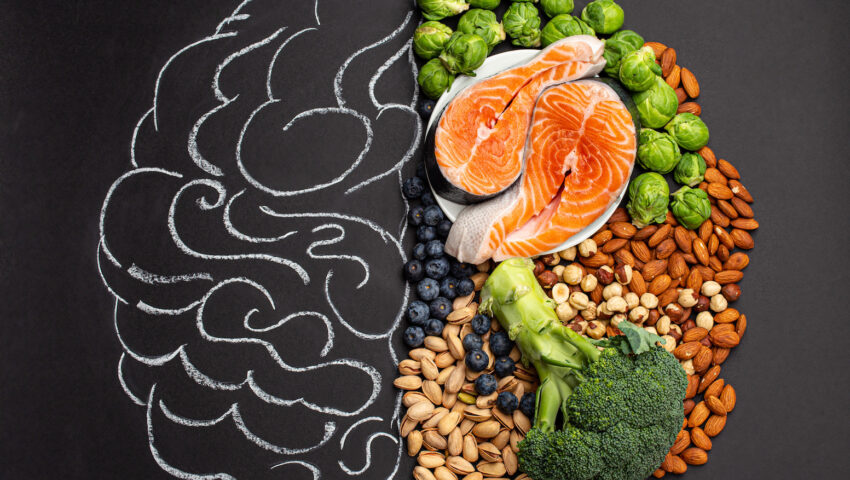Blogs
Six healthy eating tips to help support your mental health

When are you feeling down how often do you reach for the biscuit tin or want to grab something sweet? Unfortunately, comfort/emotional eating is very common as food can be a very natural and powerful reward for us.
When we consume delicious foods, it triggers the rewards and pleasure centres within our brains to release dopamine (the “feel good” hormone) which gives us that feeling of pleasure and satisfaction. However, food is way more than comfort, it is important for our mental and overall well-being.
What you put in your body can impact not only your physical health but also your emotional well-being such as improving your mood, and energy levels, helping us think a lot clearer.
So, what should you eat to improve your mental health? Here are some tips:
- Eat a variety of colourful fruits and vegetables – Aim to achieve your 5ADAY as these foods are rich in vitamins, minerals, and antioxidants, which can help protect against oxidative stress and inflammation in the brain.
- Incorporate healthy fats into your diet. Omega-3 and the 6 fatty acids found in oily fish, nuts, and seeds have been found to improve brain function and reduce symptoms of depression and anxiety.
- Eat regularly and try not to leave big gaps in between mealtimes to help maintain energy levels and mood along with preventing our blood sugar from dropping, which can lead us to feel tired, irritable, and depressed. Choose starchy (complex) carbohydrates over simple carbohydrates. Starchy carbs found in wholegrains and legumes release glucose into the bloodstream slowly, providing a steady source of energy to the brain.
- Include lean proteins such as chicken, fish, eggs, beans, nuts, and seeds in every meal, as proteins contain amino acids that our brain uses to help regulate our mood.
- Avoid processed foods and refined sugars. These foods can cause blood sugar spikes and crashes, which can affect mood and energy levels such as the feeling of tiredness and irritable.
- Stay hydrated – aim to consume 6-8 glasses of water a day (however requirements increase due to various factors such as warmer weather or physical activity). Dehydration can cause fatigue and affect mood such as making it harder for you to concentrate or think clearly, so be sure to drink plenty of water throughout the day. If you are a caffeine junkie, be careful not to overdo it. It is important to get the balance right as it can help increase the risk of dehydration, feelings of anxiety, and depression and disturb your sleep especially if you have it before bed. If you think you are having too much caffeine, try to slowly reduce your intake or switch to decaf versions of drinks.
Incorporating more mood-boosting foods into your diet is just one step you can take towards improving your mental health. But remember, food is just one part of a healthy balanced lifestyle. Other lifestyle factors, such as exercise and getting fresh air during the day, good quality sleep, and social support from your friends and loved ones, also play an important role in maintaining good mental health.
Further reading recommendations:
https://www.bda.uk.com/resource/food-facts-food-and-mood.html
https://www.mentalhealth.org.uk/explore-mental-health/a-z-topics/diet-and-mental-health





